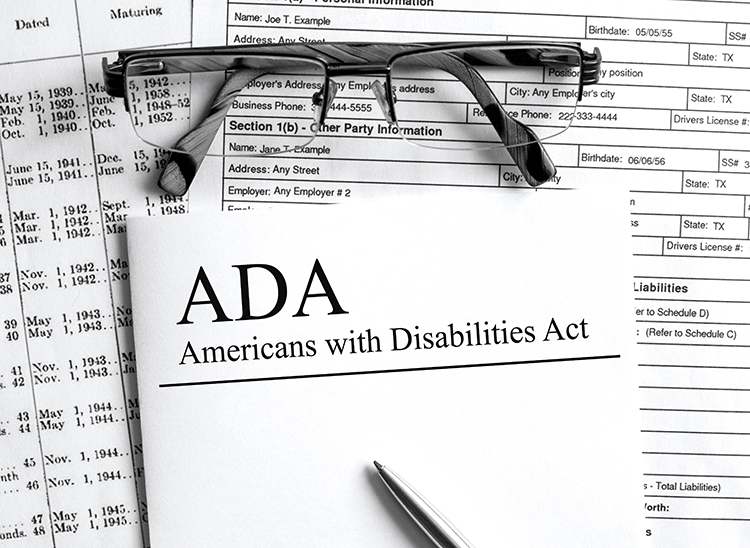Citing mootness, Supreme Court tosses case of disability law tester who 'singlehandedly generated a circuit split'

The U.S. Supreme Court has dropped a case of a disability law tester who “singlehandedly generated a circuit split” in hundreds of lawsuits that she filed alleging disability violations by hotels. Image from Shutterstock.
Updated: The U.S. Supreme Court on Tuesday dismissed as moot a case of a disability law tester and directed a federal appeals court to vacate the opinion in her case.
The Supreme Court dropped the case of tester Deborah Laufer, who “singlehandedly generated a circuit split” in hundreds of lawsuits that she filed alleging disability violations by hotels, according to Justice Amy Coney Barrett’s Dec. 5 opinion for the high court.
Justices Clarence Thomas and Ketanji Brown Jackson concurred in the judgment but did not join Barrett’s opinion.
Laufer searches hotel websites to find those that fail to list rooms accessible to the disabled in violation of the Americans With Disabilities Act. The Supreme Court had taken the case to decide whether Laufer has standing to sue hotels where she had no intention of staying.
The Supreme Court never reached that question, however, because Laufer sought to drop all her cases after her lawyer was suspended from practice in Maryland federal court for six months for allegedly lying in fee petitions and during settlement negotiations. A federal appeals court vacated the sanction, however, for insufficient notice to the lawyer, Tristan Gillespie.
Acheson Hotels, which operates the Maine hotel opposing Laufer before the Supreme Court, had urged the high court to resolve the standing issue. Although Laufer had said she doesn’t intend to file more tester suits, others will file in the circuits that sided with Laufer, the company said.
Hotels would not take future cases to the Supreme Court, Acheson had argued, if the tester could evade review by abandoning a claim.
“We are sensitive to Acheson’s concern about litigants manipulating the jurisdiction of this court,” Barrett wrote. “We are not convinced, however, that Laufer abandoned her case in an effort to evade our review. She voluntarily dismissed her pending ADA cases after a lower court sanctioned her lawyer. She represented to this court that she will not file any others. Laufer’s case against Acheson is moot, and we dismiss it on that ground. We emphasize, however, that we might exercise our discretion differently in a future case.”
The 1st U.S. Circuit Court of Appeals at Boston had ruled that Laufer had standing to sue. The Supreme Court vacated the judgment.
Thomas would have ruled that Laufer lacks standing. Jackson agreed that the case was moot but would not have vacated the 1st Circuit ruling.
Acheson Hotels was represented by Adam Unikowsky, a parter at Jenner & Block. Unikowsky issued a statement after the decision.
“We are grateful to the court for vacating the lower court’s decision and pleased that Ms. Laufer will no longer be burdening small businesses with hundreds of lawsuits.” Unikowsky said.
The case is Acheson Hotels v. Laufer.
Hat tip to SCOTUSblog.
Updated Dec. 5 at at noon to add Adam Unikowsky’s statement.
Write a letter to the editor, share a story tip or update, or report an error.



